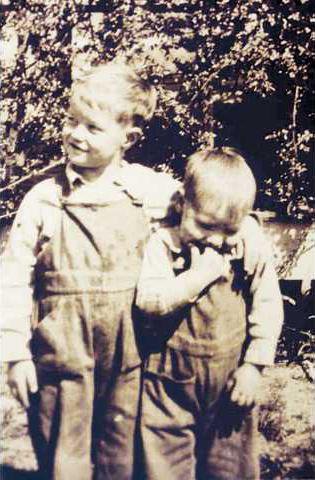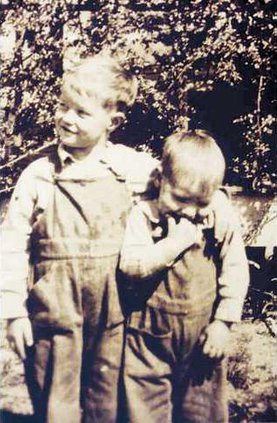Many people encounter a rough first day on the job.
But that's nothing compared to what Harold Compton experienced on his first World War II bombing mission.
As the nation marks Memorial Day nearly 70 years later, the World War II veteran remembers the moments inside of the B-17 bomber with the U.S. Army Corps like it was yesterday.
"For my first mission, we bombed a target in Frankfurt, Germany. It was Oct. 4, 1943. I was the radio operator and a gunner. When I wasn't on the radio, I was using my gun," said Compton, who lives in Habersham County.
"There were many, many fighters and anti-aircraft guns trained on us for that mission. We were pursued by a German bomber fighter (plane), which was equipped with rockets. One of those rockets was fired in our formation.
"The concussion of that blast hit right under the plane that I was in and it damaged our oxygen system. We had a gunner who died. We had to leave formation and come back alone. We were under attack all the way to the coast."
After that unnerving first mission, the 21-year-old and the remaining eight crew members were given a few days of "R&R," rest and recuperation.
Six days after his first flight, the Cobb County native was given orders for his second mission, which would turn out to be no smoother than the first.
"Our target was a railroad yard in Münster,
Germany. It's hard to describe everything that went on that day because we had the maximum thrown at us," Compton said.
"The best I can recall, we were flying at about 25,000 feet. We had a lot of opposition flying in and over the target. We had a direct hit in our No. 3 engine and lost power.
"That caused the aircraft to plunge downward and we started losing altitude very quickly. The force of the spiral pinned me to the floor. The pilot and co-pilot wrestled with it and they finally got it under control at about 15,000 feet."
The crew's reprieve would be short-lived.
"When we got back on course to Holland, we discovered that we were right over Rotterdam, which at that time was heavily defended by the Germans," Compton said.
"They shot out another (of the three remaining) engines, our landing gear and part of a rudder, which is on the tail of the plane. It was a bad situation. There were holes everywhere. You could see daylight without even looking out a window."
Again, the plane began an involuntary descent out of the sky.
"The pilots decided that we should try and make an attempt to get on the other side of the channel. We did, but we were still losing altitude," Compton said.
"At about 5,000 feet, the pilot ordered a bailout."
When his emergency exit failed to open, Compton had to resort to jumping out of the bomb compartment.
"We all made it out," he said. "The plane crashed in a cow pasture on the English coast. We still had one (faulty) bomb on board, but luckily it didn't detonate during the crash."
Aside from shrapnel injuring one of the pilot's legs, the other crew members only suffered "bruises, bumps and lumps."
"Other than that, we had pretty good luck," Compton said.
"We were pretty well scattered, but some people on the ground saw what happened and elected to pick out one of the parachutes and follow the trail. The Army got in on the act and they found all of us."
Although his subsequent missions had less dramatic endings, Compton says none of them were a walk in the park. "They were all rough," he said.
All-in-all, Compton flew 25 missions between October 1943 and March 1944. His crew even dropped bombs in Normandy, "just prior to D-Day, to help soften the area up since the Germans already had men and equipment there."
After working for a time training glider pilots and paratroopers, Compton was discharged from service in 1945. He went on to earn a law degree, but settled on a career in the real estate business, a vocation he continues to practice at age 90.
Today, the husband to Marion Compton for 64 years, father of two daughters and grandfather to four is comfortable sharing the movielike tales from his days in the military, but that wasn't always the case.
"For years, my wife and family had no idea what happened to me during those days, because I didn't discuss it," Compton said.
"It wasn't something that I wanted to think about, so I stayed away from the subject."
It wasn't until he learned about and visited the Mighty Eighth Air Force Museum near Savannah that Compton opened up about his experiences. The museum opened in 1996 and seeks to honor and preserve the stories of the men and women who served in the military from World War II to the present.
Although it doesn't block out his more bone-chilling service memories, visiting the museum does help soften the rough edges.
Being around the WWII artifacts and reading the stories of others who served during the war helped infuse Compton's recollections with warmer memories of the men he served with, his very own band of brothers.
"Having the experience I had during the war, and being with the guys that I served with, you're bound to have some memories," Compton said.
"I'll never forget. It's something that will be with you to the grave."

